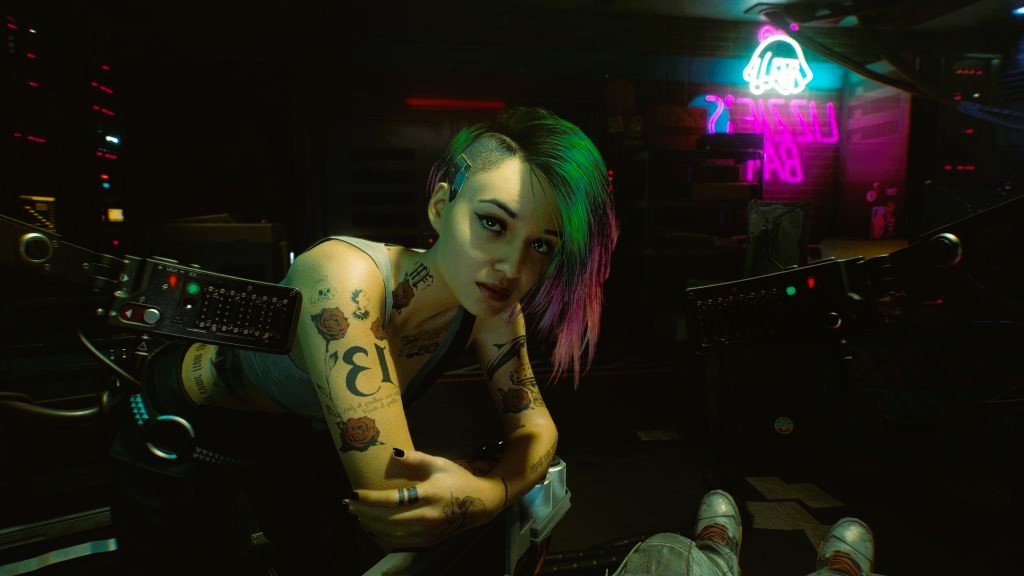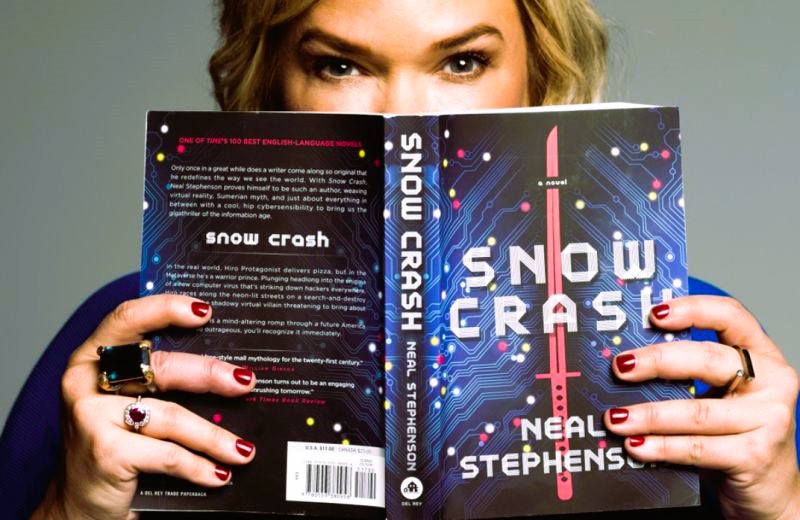
Cyberpunk Literature That Inspired Modern Sci-Fi Games
Cyberpunk as a subgenre of science fiction has become a cultural phenomenon, offering a gritty vision of the future where high-tech advancements exist alongside societal decay. Rooted in dystopian themes, cyberpunk literature delves into issues such as the dominance of corporations, artificial intelligence, surveillance, and the consequences of a hyper-technological society. This genre, which first emerged in the 1980s, has had a profound influence on modern science fiction games. Games that explore cyberpunk themes often immerse players in dystopian futures filled with neon lights, hacking, AI-driven societies, and underground resistance movements.
In this article, we will explore some of the most influential cyberpunk books that have inspired today’s sci-fi video games. From the classics that laid the groundwork for the genre to the more contemporary works that continue to push the boundaries of dystopian storytelling, these books have shaped the cyberpunk aesthetic in modern gaming. We will look at key works, the themes they explored, and how these have translated into popular sci-fi games.
1. “Neuromancer” by William Gibson
Perhaps the most influential cyberpunk novel ever written, William Gibson’s Neuromancer was published in 1984 and is often credited with defining the cyberpunk genre. The novel introduces Case, a washed-up computer hacker who is hired by a mysterious employer to pull off a high-stakes hack. Set in a world dominated by megacorporations, artificial intelligences, and cybernetically-enhanced individuals, Neuromancer explores themes of hacking, cyberspace, and corporate control, all set against a backdrop of urban decay and a fractured society.
Gibson’s vision of cyberspace—the matrix—is one of the central elements of the novel, and this concept has had a profound influence on many modern sci-fi games. The themes of hacking and interacting with virtual worlds can be found in games such as Deus Ex, Watch Dogs, and Cyberpunk 2077. The concept of cyberspace in Neuromancer is also echoed in the open-world design and hacking mechanics of games like Watch Dogs 2, where players can manipulate digital environments, hack into systems, and uncover secrets within a sprawling urban landscape.
- Key Themes: Cyberspace, hacking, AI, corporate control, dystopian future.
- Influential Games: Deus Ex, Watch Dogs, Cyberpunk 2077, Observer.
2. “Do Androids Dream of Electric Sheep?” by Philip K. Dick

Published in 1968, Philip K. Dick’s Do Androids Dream of Electric Sheep? is the novel that inspired the iconic 1982 film Blade Runner. Set in a post-apocalyptic future where Earth has been devastated by war, the story follows Rick Deckard, a bounty hunter tasked with “retiring” rogue androids who have fled to Earth. The novel explores the nature of humanity, consciousness, and the ethics of artificial life, raising questions about what it means to be human in a world where technology has blurred the lines between man and machine.
The novel’s exploration of artificial intelligence, human-android relationships, and corporate control over technology has had a lasting impact on cyberpunk and modern sci-fi games. Many of the themes from Do Androids Dream of Electric Sheep? can be seen in games such as Detroit: Become Human and The Talos Principle. These games tackle issues such as AI sentience, the rights of artificial beings, and the moral implications of creating life, all set within rich, futuristic worlds.
Did you like the article? Read also about From “The Road” to Fallout.
- Key Themes: Artificial intelligence, humanity, ethics, dystopia, identity.
- Influential Games: Detroit: Become Human, The Talos Principle, Blade Runner (1997 game).
3. “Altered Carbon” by Richard K. Morgan
Published in 2002, Richard K. Morgan’s Altered Carbon introduces a future where human consciousness can be transferred between bodies, a concept known as “stacking.” The novel follows Takeshi Kovacs, a former soldier who is hired to investigate the apparent suicide of a wealthy man. In a world where death is no longer permanent and people can live for centuries by swapping bodies, the novel explores themes of immortality, identity, and the consequences of technological advancements.
Altered Carbon has had a significant influence on modern sci-fi games, particularly those that explore themes of body swapping, consciousness transfer, and virtual identities. Games such as Cyberpunk 2077, The Surge, and Observer share thematic elements with Altered Carbon, including the notion of transcending the limitations of the human body and the moral and ethical dilemmas associated with such technology. The game Detroit: Become Human also explores themes of identity and the consequences of creating artificial beings that can potentially surpass humanity.
- Key Themes: Consciousness transfer, immortality, identity, technology, body-swapping.
- Influential Games: Cyberpunk 2077, The Surge, Observer, Detroit: Become Human.
For more information, visit Altered Carbon on Wikipedia.
4. “Snow Crash” by Neal Stephenson

Neal Stephenson’s Snow Crash, published in 1992, is a fast-paced cyberpunk novel that blends virtual reality, ancient history, and a satirical view of a fragmented, hyper-commercialized future. The story follows Hiro Protagonist, a hacker and swordsman, as he uncovers a conspiracy that threatens both the virtual Metaverse and the real world. The novel introduced the concept of the Metaverse, a virtual world where users interact via avatars, which has since become a significant influence on both literature and gaming.
Snow Crash has had a profound impact on the development of virtual reality (VR) in games. Its depiction of an immersive online world where players can escape the harsh realities of the real world has been mirrored in games like Second Life, Ready Player One (game adaptation), and Sword Art Online: Fatal Bullet. These games embrace the concept of the Metaverse, allowing players to explore vast virtual environments, interact with other players, and engage in experiences beyond the physical world.
- Key Themes: Virtual reality, hacking, corporate control, Metaverse, dystopia.
- Influential Games: Ready Player One (game), Second Life, Sword Art Online: Fatal Bullet, CyberConnect2’s .hack series.
5. “The Windup Girl” by Paolo Bacigalupi
Set in a future where biotechnology and environmental collapse define the world’s economy, Paolo Bacigalupi’s The Windup Girl explores the consequences of genetic engineering, corporate monopolies, and environmental degradation. In this dystopian future, genetic modification has run rampant, with “windup” people—genetically engineered humans—struggling to survive in a world dominated by powerful corporations.
The novel’s focus on genetic engineering, environmental collapse, and the abuse of technology has influenced many games that explore similar themes. Deus Ex: Mankind Divided, Horizon Zero Dawn, and BioShock Infinite all share thematic similarities with The Windup Girl. These games delve into the consequences of advanced technology, especially biotechnology, and the ethical dilemmas surrounding its use. The struggle for survival in a world dominated by corporate greed and environmental degradation also resonates in these games, which feature protagonists fighting against oppressive systems.
- Key Themes: Biotechnology, environmental collapse, genetic engineering, corporate control.
- Influential Games: Deus Ex: Mankind Divided, Horizon Zero Dawn, BioShock Infinite.
Cyberpunk literature has had a profound influence on modern sci-fi games, shaping not only the visual aesthetic but also the themes and mechanics that define the genre. From William Gibson’s groundbreaking Neuromancer to Neal Stephenson’s satirical Snow Crash, these books have provided the building blocks for the dystopian worlds and the complex narratives that players now enjoy in games like Cyberpunk 2077, Deus Ex, and Detroit: Become Human. As cyberpunk continues to evolve in both literature and gaming, these works will remain a cornerstone of the genre, inspiring future games and pushing the boundaries of what is possible in both storytelling and gameplay.

